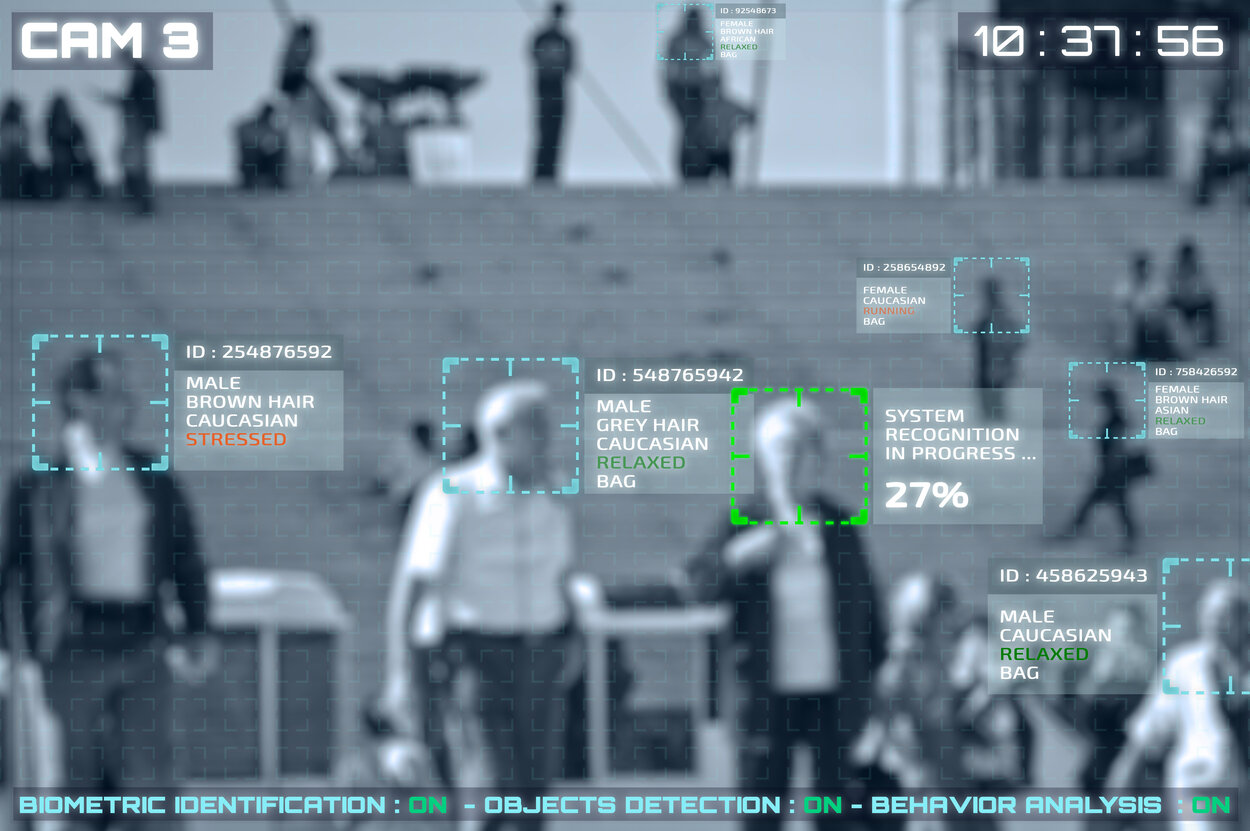[vc_row][vc_column][vc_column_text]The ASIC regulatory sandbox, established in December 2016, provided a licensing exemption to allow eligible fintech companies to test certain products or services for up to 12 months without an Australian financial services licence (AFSL) or Australian credit licence (ACL). The Australian Government enhanced regulatory sandbox (ERS) commenced on 1 September 2020 and superseded the …
Expertise Archives:
Facing up to privacy concerns: smart cities grapple with keeping surveillance compliant
The benefits often associated with government use of facial recognition technology are significant and wide-ranging. Facial recognition is promoted as being able to help stop crime by matching individuals’ images to law enforcement databases, manage access to secure areas like government buildings, remove the need for public transport ticketing systems by identifying commuters, and assist …
Loose lips sink ships: Defamation by emoji?
Burrows v Houda [2020] NSWDC 485 Last month, the District Court of New South Wales determined that the ‘zipper-face’ emoji was capable of conveying a defamatory meaning when used in a Twitter post. The interlocutory decision was made in the context of defamation proceedings commenced by Ms Zali Burrows against Mr Adam Houda in relation …
Continue reading “Loose lips sink ships: Defamation by emoji?”
Over the Wire Holdings Ltd
Seer Security Pty Ltd sale to Tesserent Limited
McCullough Robertson has successfully led the sale of Seer Security’s Melbourne and Canberra based businesses to Tesserent Limited (ASX: TNT). With Seer Security’s cybersecurity capabilities focused on Government-certified delivery of Assurance and Governance, Risk and Compliance and software development, this deal significantly strengthens Tesserent’s cybersecurity services and delivery to Australian Federal Government departments and agencies. …
Continue reading “Seer Security Pty Ltd sale to Tesserent Limited”
What is a day? High Court Delivers Landmark Decision on Personal Leave Entitlements
In a significant decision, the High Court of Australia has clarified the method of calculating an employee’s entitlement to paid personal/ carer’s leave under the Fair Work legislation. On 13 August 2020 the High Court of Australia handed down its decision in Mondelez Australia Pty Ltd v AMWU & Ors [2020] HCA 29. Importantly, the …
FIRB Reforms Article Series – Part 4: Data
The devil’s in the data: How FIRB’s proposed national security test may impact on businesses dealing with ‘sensitive data’ In this next edition of our FIRB Reforms Article Series, we drill down deeper on the Commonwealth Government’s proposal to include sensitive data as a key consideration in their expanded focus on sensitive national security businesses. …
Continue reading “FIRB Reforms Article Series – Part 4: Data”
Emerging Issues: Australian Technology, Media and Telecommunications Sector Insights
[vc_row][vc_column][vc_column_text] We are pleased to bring you the July 2020 edition of Emerging Issues for the Technology, Media and Telecommunications (TMT) sector. In this Emerging Issue, we take an in-depth look at: the implications of the recent Data Protection Commission v Facebook Ireland Limited (C-311/18) decision and what it means for Australian businesses sharing data …
ACCC commences proceedings against Google – consent in the spotlight
The Australian Competition and Consumer Commission (ACCC) launched proceedings in the Federal Court of Australia against Google for misleading Australian consumers about its privacy collection practices. The ACCC alleges Google misled consumers when it failed to properly inform consumers, and failed to gain explicit informed consent, about its decision to combine personal information in consumers’ …
Continue reading “ACCC commences proceedings against Google – consent in the spotlight”
Kangaroos and cowboys
Most people will have heard of a ‘bull market’ or a ‘bear market’, but United States (US) business news provider CNBC added a new animal to the financial zoo earlier this year by describing the current US stock market as a ‘kangaroo market’ (due, presumably, to its bouncing up and down without any specific trend). …
2020 Media law reforms in Australia
Just over one year after the Australian Competition and Consumer Commission (ACCC) released its Digital Platform Inquiry – final report[1] (DPI), Australia’s media regulatory landscape is finally set for a shake up, with reforms to address largely unregulated online media platforms anticipated for late 2020. Draft mandatory code of conduct due July 2020 – news …
Twitter outage linked to data breach
On 15 July, Twitter announced that it had suffered a data security breach, which allowed the accounts of various world leaders and prominent individuals to be compromised. As part of its response to the breach, it shut down all ‘blue tick’ verified accounts for about an hour, which naturally triggered worldwide attention to the issue. …
COVID-19 and the new digital clinical trial era
The era of the digital clinical trial may already be upon us thanks to the impacts of COVID-19. While conceptualisations of the ‘digital patient’ and technology-integrated clinical trials were somewhat futuristic even in 2019, with COVID-19 grinding clinical trials to a halt in 2020, the life sciences industry may be forced to pivot into this …
Continue reading “COVID-19 and the new digital clinical trial era”
New year, new defamation scene: Australia’s defamation laws set for a digital makeover in late 2020
Australia’s defamation law space is one to watch In the latter half of 2020: Despite this traction, Australia is still only on the precipice of a defamation law ‘digital makeover’. Until seminal cases have exhausted their appeals, and reforms are introduced and tested, uncertainty lingers about who is liable for what kind of defamatory statements …
Defamation: The Social Media, Social-distancing Edition
With many of us working from home, we are increasingly relying on technology, including social media, to keep us connected. It is easy to forget that the increased use of social media (and the publication it relies on) exposes us to a greater risk of defamation claims (and potentially increases the damages flowing from those …
Continue reading “Defamation: The Social Media, Social-distancing Edition”
Revisiting data in a post-COVID world
COVID-19 has presented new and unique challenges across both the private and public sector. For local governments, the shift of workforces into their homes and consequential repopulation of suburbs during working weeks, as well the shut down or pivoting of local economies, presents the opportunity for local governments to revisit how data sets can be …
Schrems II – A view from downunder
Introduction – The challenge of extra-territoriality for non-EU businesses and GDPR Since the introduction of the General Data Protection Regulation (GDPR) in 2018, Australian businesses, like other non-EU domiciled businesses around the world, have grappled with the extra-territorial operation of the GDPR, particularly in the absence of a body of clear judicial interpretation on the …
Schrems II and its implications for data export from the EU
Overnight, the Court of Justice of the European Union (CJEU) released its judgment in Facebook Ireland v Schrems (C-311/18). The case, the judgment of which will have significant implications for exporting data from the EU, was concerned with the legality of the transfer of an EU citizen’s personal data by Facebook Ireland to its United …
Continue reading “Schrems II and its implications for data export from the EU”
Revisiting data in a post-COVID world
COVID-19 has presented new and unique challenges across both the private and public sector. For local governments, the shift of workforces into their homes and consequential repopulation of suburbs during working weeks, as well the shut down or pivoting of local economies, presents the opportunity for local governments to revisit how data sets can be …
Medicine advertisers now independently responsible for ensuring compliance with Therapeutic Goods Legislation
As of 1 July 2020, life sciences stakeholders and pharmaceutical companies are now independently responsible for ensuring their medicine advertisements in ‘specified media’ comply with Australian Therapeutic Goods Legislation. This is instead of relying on the Therapeutic Goods Administration (TGA) pre-approval process, which ended 30 June 2020. Under Therapeutic Goods Legislation, specified media includes magazines, …
Data Security Checklist for NSW Government Agencies
As the COVID-19 pandemic has unfolded, we have become increasingly reliant on remote Internet-connected workforces. The practical difficulties with returning to in-person working environments have highlighted that we will continue to rely on remote working arrangements, at least to some extent, for the foreseeable future. Additionally, it is likely that we will see a structural …
Continue reading “Data Security Checklist for NSW Government Agencies”
Viruses about! Cyber-security update for lenders
The Lender series publications are a series of easy to read and practical ‘how to’ guides aimed at assisting lenders with typical issues encountered when providing finance. The COVID-19 outbreak poses an array of cyber security challenges for lenders in Australia. The ACCC’s cyber monitor, ScamWatch, has reported a significant increase in cyber security incidents …
Continue reading “Viruses about! Cyber-security update for lenders”
Casual approach causes major headache: WorkPac v Rossato
In a unanimous, but 272 page, judgment, the Full Court of the Federal Court has shattered what many employers had considered to be the standard position about engaging casual employees. An appeal is all but certain. However, as it stands, employers with a casual workforce face an unprecedented risk of employees claiming back-pay, and potentially penalties, …
Continue reading “Casual approach causes major headache: WorkPac v Rossato”
Workers not entitled to use paid sick leave during stand down
In a significant decision, the Federal Court has determined that Qantas Airways does not need to allow its stood down workers access to paid personal/carer’s leave or compassionate leave during the period of stand down. The decision by Justice Flick clarifies the obligations of employers and the rights of thousands of other stood down workers …
Continue reading “Workers not entitled to use paid sick leave during stand down”
Data Security Checklist for NSW Councils
As the COVID-19 pandemic unfolds, we are becoming increasingly reliant on remote internet-connected workforces. With this shift to remote working, comes heightened data sensitivity risks, including an increase in the likelihood of cyber attacks and privacy breaches. Specifically, there has been an uptick in COVID-19 themed ‘phishing’ emails and SMS messages. Hackers are taking advantage …
Copyright Agency to provide an additional $375,000 in funding to Australian artists and writers, with more funding to follow
Summary In response to the unfolding COVID-19 pandemic, the Copyright Agency has announced $375,000 in additional funding to support writers, artists and to move arts projects, festivals and events online. The Copyright Agency will also bring forward to the first quarter of the next financial year $1.8 million worth of grants under the Copyright Agency …
Privacy Act exceptions
Introduction In the context of the COVID-19 pandemic, many organisations are trying to implement policies and practices that involve the collection of health information of their staff and visitors to their sites to ensure the ongoing monitoring and maintenance of healthy workplaces. This is an important approach to a public health crisis. However, there are …
Emerging Issues: Australian Technology, Media and Telecommunications Sector Insights
We are pleased to bring you the April 2020 edition of Emerging Issues for the Australian Technology, media and telecommunications (TMT) sector. In this Emerging Issues, we discuss: how the challenge of mass-remote-working in the advent of COVID-19 raises both new and known cyber-security issues; the current regulation of digital advice providers and the challenges …
JobKeeper payments: wage relief and support for businesses
[vc_row][vc_column][vc_column_text]The Australian Government is offering wage subsidies to help employers retain their employees during the COVID-19 pandemic, and keep employees engaged until the inevitable rebound. Wage relief Eligible businesses (including not-for-profits) who elect to participate in the scheme can expect a wage subsidy of $1,500 per fortnight per eligible employee. The JobKeeper payment is a …
Continue reading “JobKeeper payments: wage relief and support for businesses”
Australian Bushfire Declaration – your rights and obligations
WHO SHOULD READ THIS WHAT YOU NEED TO KNOW On 20 January, the Attorney-General made the Privacy (Australian Bushfires Disaster) Emergency Declaration (No 1) 2020 (Declaration) under s80J of the Privacy Act 1988 (Cth) (Privacy Act) as a response to bushfires in Australia resulting in death, injury and/or property damage from August 2019 into 2020. …
Continue reading “Australian Bushfire Declaration – your rights and obligations”


























